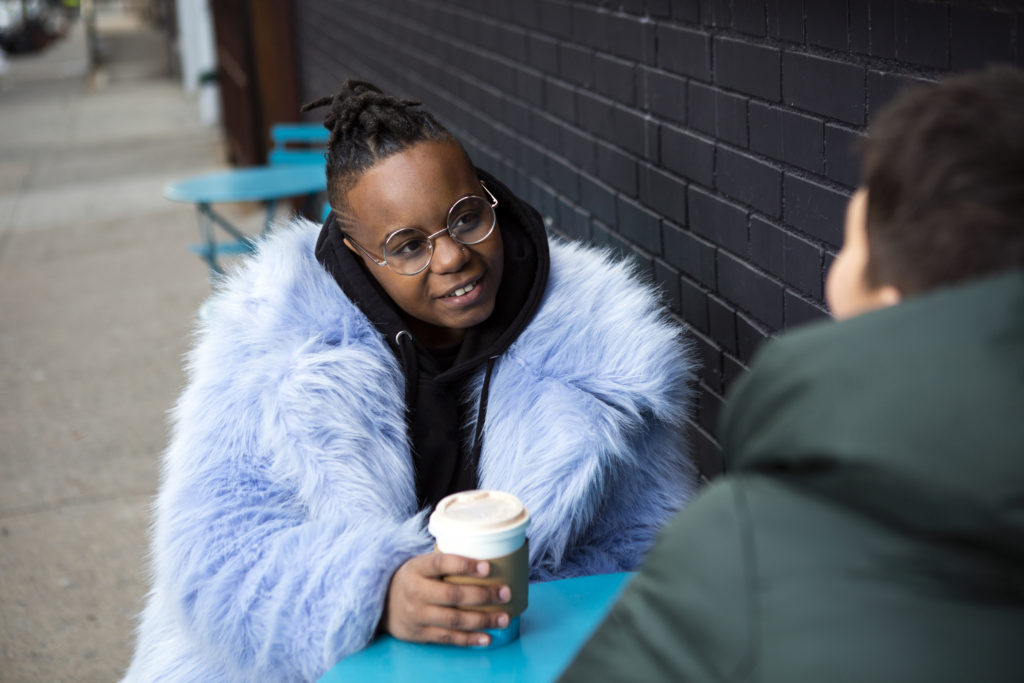
By ena ganguly
I was taught to feel for others before I felt for myself, which largely impacted the ways I interacted with others. I’m not sure why, though I can guess. I was a baby, growing up around adults who would not own their own faults, misgivings and failures, and they looked to me to fill certain emotional voids. Add to that my gender, a girl. I was already ordained to be a person who would rehabilitate my father from his addictions. My grandmother would often tell me, “You’re his daughter. It’s your responsibility to heal him.” I was being prepared for a role that was often expected out of women in my community: the nurturer, the healer, the mother.
Never mind the fact that I was already sensitive to energy. My childhood was riddled with fears. Fear of shadowy figures, people I could not see or touch but sensed, and so on. I was scared of all that I felt and all I could do, so I shut it out. I focused on my family instead, and I thought I could trust them. I believed their love would hold me, and I would be safe in their embrace.
It was not so. Family is blood, but not often healthy. More often than not, relatives can be toxic and cause more harm than good. When I would stick up for myself or prioritize my needs, my relatives would often call me selfish. Even my own mother. I didn’t know it then, but most women in my family were called selfish at one point or another, because they dared to acknowledge their own personhood, their needs and boundaries. They gave up trying to stand for themselves, eventually.
I never did. I couldn’t. My identity as a queer woman of color would not allow that, because I knew if I ever did surrender to this expectation of being someone for everyone but no one for myself, it would destroy me. I would be buried in other people’s expectations of me.
Life is not easy for any empath. People often sense it in you, and they take advantage of it. Add in cultural and gender expectations plus queerness, well, the obstacles look way more difficult. They look different too. Here are some ways I navigate being an empath:
One: I practice focusing on my needs before others.
Grounding myself on what I need before considering anything else helps me a lot. Often it looks like reminding myself that I don’t have to go on smiling when talking to someone. I can relax my face and relieve it of any expression. I can just listen, instead of performing some sort of therapist role.
Another way I practice focusing on myself first is by letting others who are close to me know that I’m not in a space to talk to them about something that may be very information heavy, emotionally upsetting/shocking, and so on. If they love me, they understand. I’ve had to have this conversation with my mother several times, and she has gotten offended at me suggesting that I don’t want to talk to her, but it’s not that. I don’t have the capacity to talk about some things, sometimes, and that’s okay!
I’m not going to be available to everyone all the time to talk about anything. I’m not the person for that. I would rather be upfront about that than to tolerate it for a long time and create negative health outcomes for myself and possibly endanger my relationship with someone I love. And that’s something that many empaths have to realize.
Two: Choose wisely who you spend time with.
Majority of my time is spent by myself, with my partner or my mother. I know them well, and I trust them. I know my communities, and I love them, but I may not always trust every individual that belongs to those communities nor does it mean I know them.
No matter how close a person may be in terms of their experiences, identities and personalities to me, it’s still important for me to discern for myself if they are worth my time. This feels like a smart way for me to protect myself, while also giving others the opportunity to get to know me and for me to do the same.
Three: Acknowledge that loving someone does not involve martyring yourself.
This is huge. This realization enabled me to let go of some really toxic behaviors that I was exhibiting in my relationships, especially my romantic one. It’s in my family’s culture to let the women be the source of unconditional love, comfort and support to the point where it violates any personal capacities or boundaries those women may have.
Unknowingly, I was presenting those behaviors in my relationship: going out of my way more times than I needed to, ignoring my own needs for the sake of this other person who didn’t ask me to do so, and then resenting her when my efforts weren’t properly thanked. It took some therapy, open conversations, introspection and meditation/prayer for me to truly understand and release that inherited and learned emotional habit.
It was draining me, and wasn’t serving this relationship that I really wanted to be in, so I very deliberately began to disengage with that type of behavior. I feel so bad for the women in my family who were forced to engage in this behavior, or worse, those who had internalized it so much from watching their foremothers that they didn’t realize they were doing it. I pray that through my own healing and undoing and releasing, I’m fulfilling the wishes of my ancestors and breaking the bonds that kept us from our healing and self-actualization.
We all deserve empathy, space to be held, and to be understood but may it never be at a cost to someone else, no matter how eager or sincere those exchanges are. They must be stopped, acknowledged and shifted before old patterns arise once again.
What are some ways you navigate your relationships as an empath? Share with us on Facebook, Twitter, and Instagram.


Comments 1
This article really spoke to me. Thank you for sharing your experiences and suggestions!